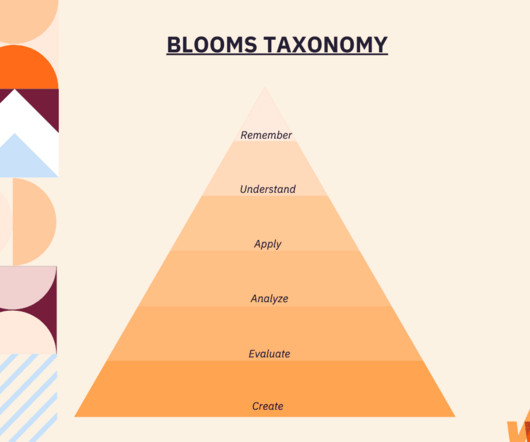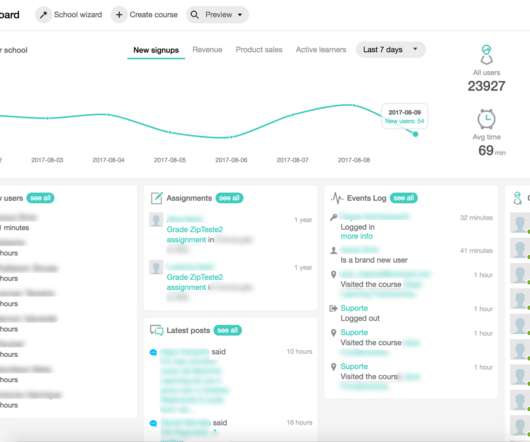Use Your Learning Goals to Bring Balance to Your Training Programs 3/3:Synthesis and Evaluation
CrossKnowledge
MARCH 25, 2019
Mapping skills acquisition into six levels, Bloom’s Taxonomy is a favorite tool among trainers to help them design their learning programs. L&D managers and instructional designers use Bloom’s Taxonomy to measure skills acquisition and tailor the learning targets of their programs to learners’ needs.




































Let's personalize your content